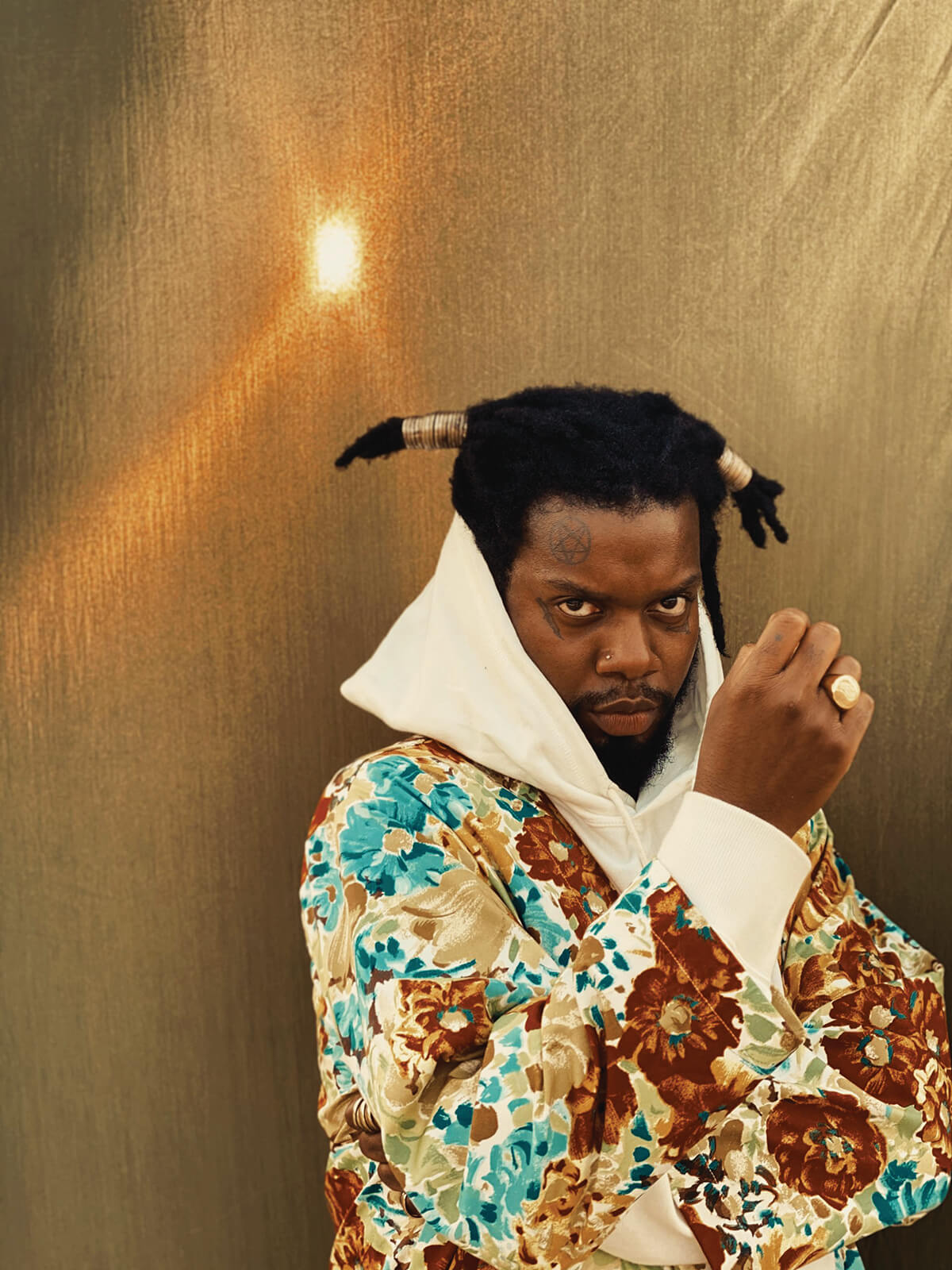Arts & Culture
R&B Star Serpentwithfeet Discusses How Baltimore Shaped Him
Josiah Wise grew up in the city, nurturing his talents in the church and public-school choir, before landing attention from 'Billboard,' Rolling Stone,' and 'Vogue.'

A star has been rising on the national music scene, and he hails from Baltimore. Serpentwithfeet, aka Josiah Wise, grew up in the city, nurturing his talents in the church and public-school choir before landing gigs at the likes of Coachella and attention from Billboard, Rolling Stone, and Vogue. His ethereal brand of R&B expands on his second record, Deacon, evolving from haunting soundscapes to buoyant melodies that speak to Black queer love, with a few hometown shoutouts along the way. We spoke with Wise about how the city shaped him.
Growing up in Baltimore, you were raised in the church and were part of the choir from a young age, with gospel coming through in your work today. Was that where you fell in love with music?
Church choir was definitely my earliest musical memory. From the time I was a kid, rehearsal was a big part of my life. It taught me how to work with others. I’ve always been interested in the arts—theater, dance, writing, all those things—but music just electrified me. There was so much gravity to it. It was something I couldn’t shake.
You attended Baltimore City College. How did your time there influence you as an artist?
We had such a rich education as teenagers. We had such wonderful arts programs, dance teachers, an incredible marching band. The choir was incredible; we traveled and competed internationally. It just really opened my eyes and widened my perspective and made me incredibly proud of being a Black artist. They never shied away from talking about Blackness.
During school choir, you performed a lot of classical music. What was it like working with so many pieces written by a bunch of old white guys?
We learned the Handel, the Schubert, the Bach, but we also learned a lot of music by Black composers, from Moses Hogan to Nathaniel Dett to H.T. Burleigh. Our teachers were preparing us to be strong, independent thinkers. It definitely changed me.
Any there any particular artists that had a big influence on you?
Sisqó, for sure. We all knew he and Dru Hill were from Baltimore. He was our legend. He was such a wonderful, charismatic singer. Through and through a great performer. And just what he did sartorially, with the way he presented himself with fashion and in his stage presence. I often think about how brilliant he was.
What was your relationship to Baltimore Club music as a kid?
I think a lot about just how connected to the rhythm we were as kids. Anything could turn into a club song. Somebody could start making a beat on the lunch table and we had a song. It was a lot of fun, but it was also incredibly functional, with great storytelling like Rod Lee’s “Dance My Pain Away” or Miss Tony’s “Storybooks” or “Living In The Alley.”
Did your city having its own genre inspire you to carve out your own unique style?
Absolutely. Baltimore artists are so brilliant, so innovative, and they gave me a lot of courage once I decided to start making music. I saw people push the needle.
Do you still consider Baltimore home?
I do. I love Baltimore City. I am so thankful that I was nourished and nurtured by so many people there. A lot of the tools I needed, I got in Baltimore. There was no creative lack, no spiritual lack, no intellectual lack in that city. Baltimore equipped me with everything I needed, and by the time it was time for me to go, I was ready. I’m still ruminating on those lessons.